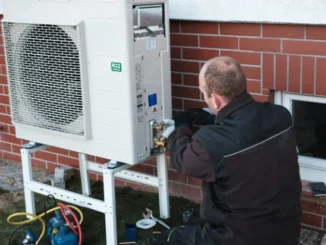
Wind farm operators face an investigation into claims that they overcharged by £100million last year alone when asked to switch off turbines to cut excess power to the grid.
The cost – which is likely to have been added to consumer bills – has been highlighted by the Renewable Energy Foundation and is now under investigation by industry regulator Ofgem.
Wind farm operators are accused of ‘inflating’ the prices they charge, with the cost ultimately passed on to the consumer.
REF director John Constable said: ‘Our evidence suggests that multiple wind farm operators have been charging over the odds to reduce their output on windy days, generating no energy but costing consumers a fortune.’
National Grid’s system operating wing (ESO) pays energy generators to increase or decrease supply in real time to balance it with demand.
These costs are then ultimately footed by the consumer through bills.
REF said that the income wind farm operators are meant to take is based on the prices set for their electricity output and the volume of electricity that the wind farm predicts would have been generated during the time it is turned off.
In a statement the REF said it ‘estimates that elevated prices charged for constraints cost the consumer in excess of £100 million in 2023 alone.’
It added: ‘The complex and opaque UK subsidy regime obscures the impact of constraint bid prices on the costs to the consumer, but Ofgem has the authority to check this behaviour and apply retrospective fines to recover these excess profits if it determines that there has been an abuse of market power.’
An Ofgem spokesman said: ‘Ofgem works with the Electricity System Operator (ESO) to look into alleged improper behaviour of wind farms and other generators.
‘We’ll consider all the facts and if evidence of a breach of market rules is found we will not hesitate to act. We are also currently consulting on whether any changes are required to the licensing rules in this area.’



